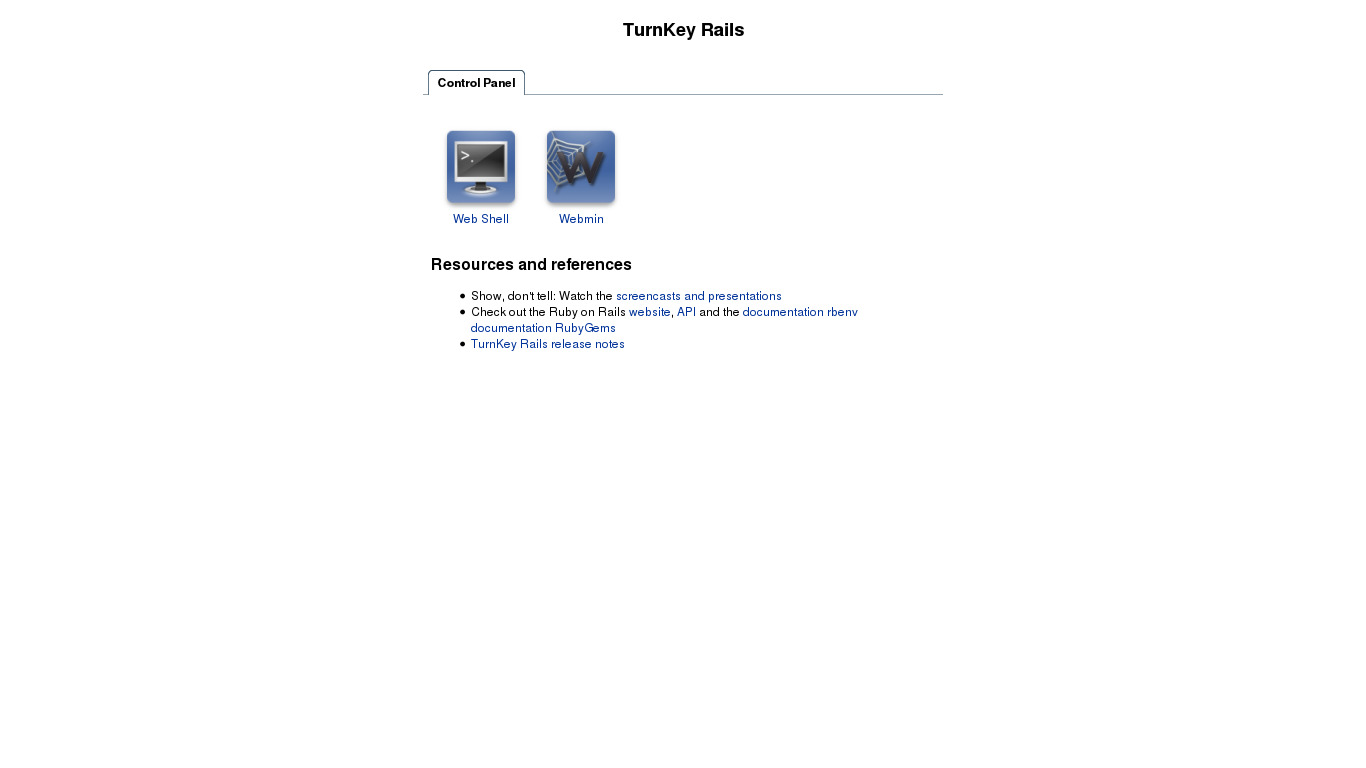You are here
Ruby on Rails
Web Application Framework
Ruby on Rails is an open-source web framework that's optimized for programmer happiness and sustainable productivity. Written in Ruby, Rails lets you write beautiful code by favoring convention over configuration. The result is a web framework that allows you to transition from idea to implementation in a very short period of time.
Run from browser
V 18.1
V 17.1
GitHub
This appliance includes all the standard features in TurnKey Core, and on top of that:
- SSL support out of the box.
- Webmin modules for configuring Apache2, and MySQL.
- Ruby on Rails configuration:
- Deployment via Phusion Passenger for Apache (mod_rails)
- Preconfigured example Rails application located at /var/www/railsapp
- MySQL databases setup for production, development and testing.
- RubyGems package manager installed from upstream tarball
- APT and RubyGems are both package management systems and may potentially conflict.
- We recommend using RubyGems for managing Rails components (called gems), and APT for everything else.
- Essential build packages (build-essentials) are included to aid in building gems.
Upgrading RubyGems itself and Rails components (gems):
gem update --system gem update
See the Ruby on Rails docs for further details.
Usage details & Logging in for Administration
No default passwords: For security reasons there are no default passwords. All passwords are set at system initialization time.
Ignore SSL browser warning: browsers don't like self-signed SSL certificates, but this is the only kind that can be generated automatically without paying a commercial Certificate Authority.
Web - point your browser at either:
- http://12.34.56.789/ - not encrypted so no browser warning
- https://12.34.56.789/ - encrypted with self-signed SSL certificate
Username for database administration:
- MySQL command line tool; log in as root (no password required):
$ mysql --user root Enter password: Welcome to the MySQL monitor. Commands end with ; or \g. Type 'help;' or '\h' for help. Type '\c' to clear the current input statement. mysql>
Username for OS system administration:
Login as root except on AWS marketplace which uses username admin.
- Point your browser to:
- https://12.34.56.789:12321/ - System control panel
- https://12.34.56.789:12320/ - Web based command line terminal
- Login with SSH client:
ssh root@12.34.56.789
Special case for AWS marketplace:
ssh admin@12.34.56.789
* Replace 12.34.56.789 with a valid IP or hostname.
